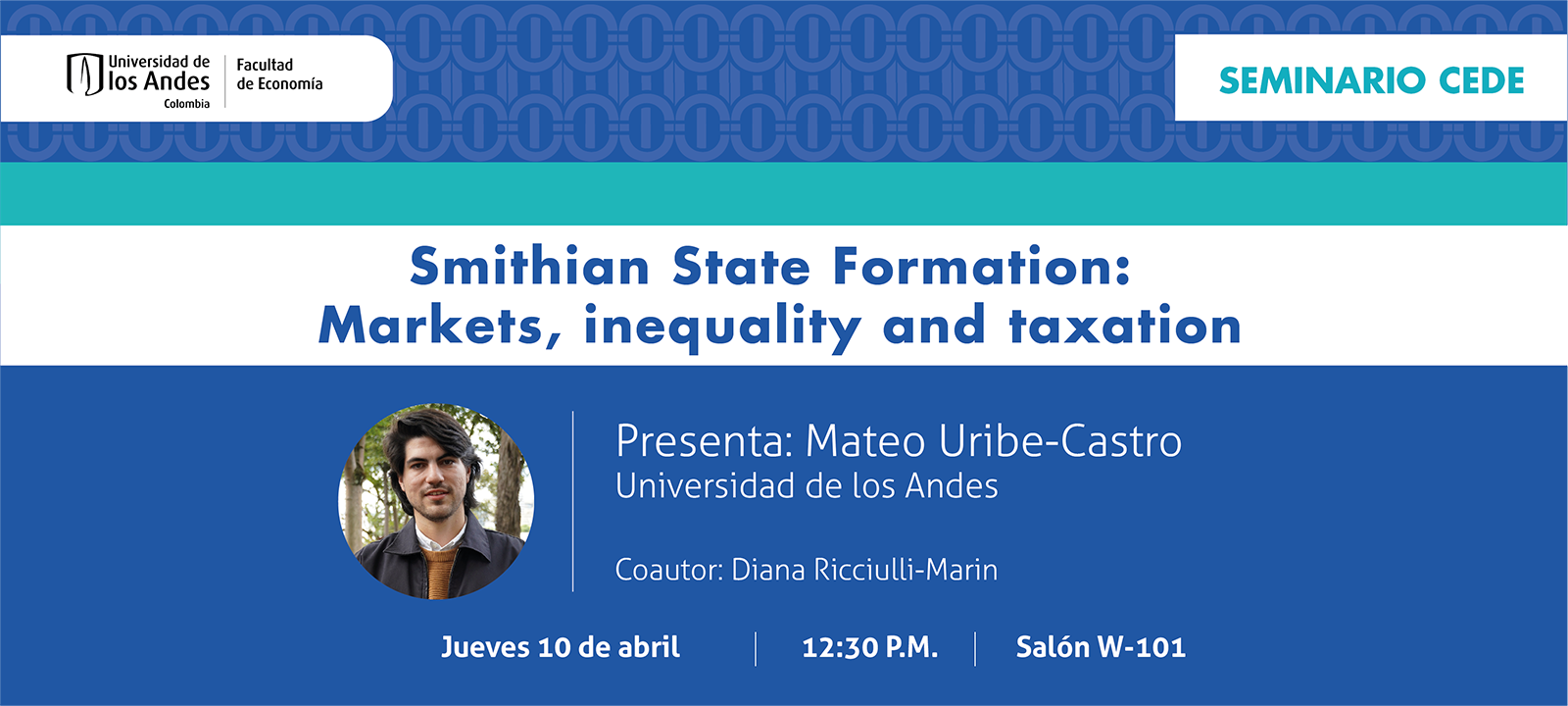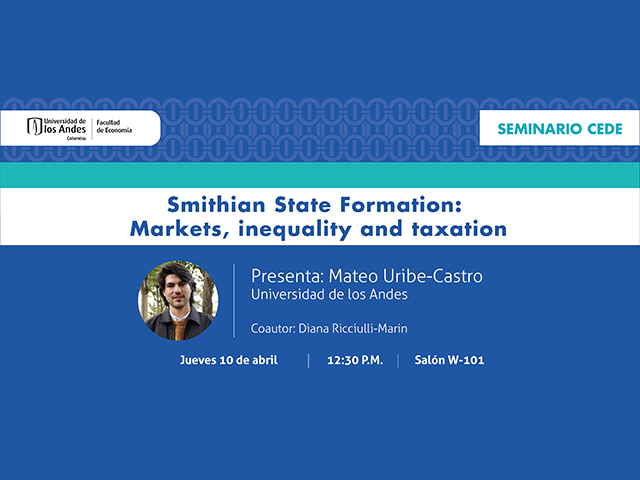Seminario CEDE - Mateo Uribe-Castro

This study examines the relationship between land inequality and tax collection. Contrary to traditional models that emphasize the redistributive role of taxation, we focus on its role in providing public goods that help develop markets, increasing productivity--i.e. enforcement of property rights, coordination, roads, electricity, etc. To explore this relationship, we build a simple model of public good provision where landowners decide whether or not to comply with property taxes taking into account: 1) the role government expenditure has on their property values, and 2) their expectation of the punishment when evading taxes. We validate the model empirically, using data from Colombian municipalities between 1923 and 1960, in two ways. First, we use detailed land values' data from cadastres available for a subsample of municipalities and the model's structure to predict tax revenues and compare them with actual revenues. Second, we show evidence in favor of the main model predictions: land concentration is positively correlated with tax revenues per capita, and negatively correlated with the average fiscal cost of collecting one peso. These correlations are robust to controlling for measures of potential sources of omitted variable bias. Moreover, they are stronger for places that stand more to gain from the development of markets.

